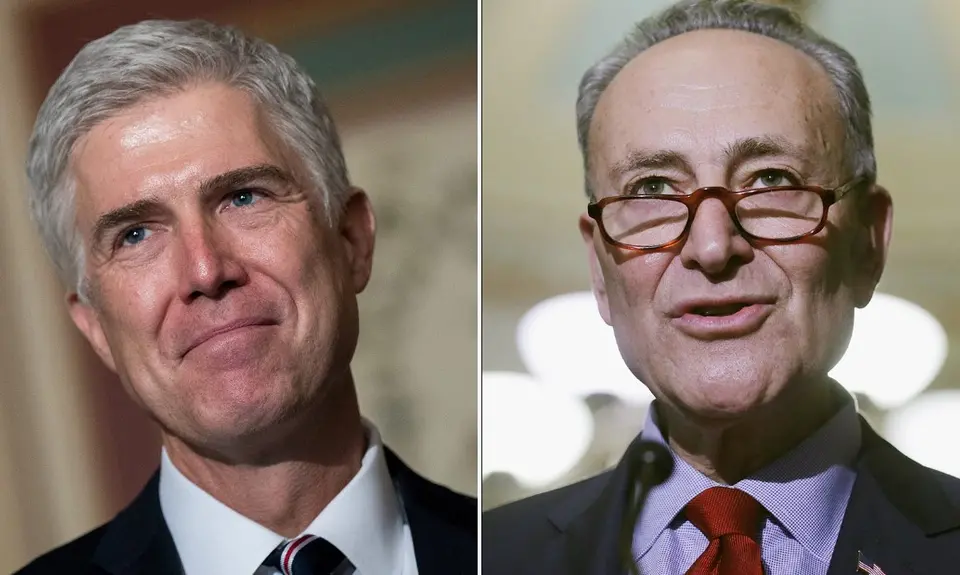The decade-long judicial career of Neil Gorsuch is littered with the lives damaged by his approach to the law that favors corporations and the powerful over everyday Americans. Three of those people spoke out this morning at a press conference on Capitol Hill to tell their first-hand stories of how Gorsuch’s ideological approach to the law has harmed them.
Truck driver Alphonse Maddin talked about his ordeal in subzero weather hauling a trailer with iced-over breaks and waiting in a truck without heat for promised help that was hours late. His body was numb, his voice was slurred, and he was scared. To save his life, he unhooked the cargo trailer and drove the truck for help—and returned in less than 15 minutes when help arrived. The company’s response? They fired him. “Their cargo was more important than my life,” he said. Mr. Maddin turned to the courts to vindicate his rights and won, but Judge Gorsuch dissented and wrote that his employer had been perfectly within its rights to fire him. Mr. Maddin shared his surprise and dismay at learning that this same judge had actually been nominated to serve as a justice of the Supreme Court: “[Gorsuch] demonstrated a willingness to artfully diminish the humane element that encompassed the issue and ignored the fact that the nation's Congress had passed [a law] to uphold and maintain safe and humane working conditions.”
Patricia Caplinger shared her experiences with the giant company Medtronic pushing a dangerous “off-label” use of one of its devices. They persuaded her doctor of its safety, but the results were disastrous. Ms. Caplinger revealed that she had needed numerous follow-up surgeries to make up for the damage done by the Medtronic device, and even with those, she is still always in pain. She talked about what she later found out: Medtronic had evidence this particular use of the device was dangerous, and the scientists who published articles claiming the device was safe had received millions of dollars from the corporate giant. When Ms. Caplinger sued, Gorsuch wrote an opinion for a divided panel ruling that she couldn’t bring her case to trial.
Perhaps most heartbreaking was the story that young Katherine Hwang told about her mother, Professor Grace Hwang. Professor Hwang had taught at Kansas State University for more than a decade, but needed to take six months off for treatment for leukemia, which included a bone marrow transplant. When she was ready to return, there was a severe flu outbreak on campus and—because of her compromised immune system—her doctors warned her to stay off campus until the outbreak was over. So she asked the university for an extension of her leave, during which she could do a lot of her work from home, but her school denied the request. Since the university is legally required to make reasonable accomodations in situations like this, Professor Hwang sued to vindicate her rights. Grace shared how stunned her family was to learn that the court had ruled against her mother. Judge Gorsuch essentially decided that asking an employer to give more than six months leave is unreasonable. Despite the professor’s willingness and ability to do a significant amount of work from home until the flu outbreak ended, Gorsuch said ruling for her would “turn employers into safety net providers for those who cannot work.”
These Americans were brave enough to speak out and tell us the reality behind Judge Gorsuch’s smile and affability. Their patriotism is admirable.
You can see the video of them sharing their experiences here, and you can read about them and others impacted by Gorsuch’s rulings in People For the American Way’s report Real People, Real Lives: The Harm Caused By Judge Gorsuch. And for an analysis of how Judge Gorsuch’s dissents reveals his propensity to rule in favor of the powerful and against everyday people, read PFAW’s report The Dissents of Judge Neil Gorsuch: Far to the Right and Out of the Mainstream.
